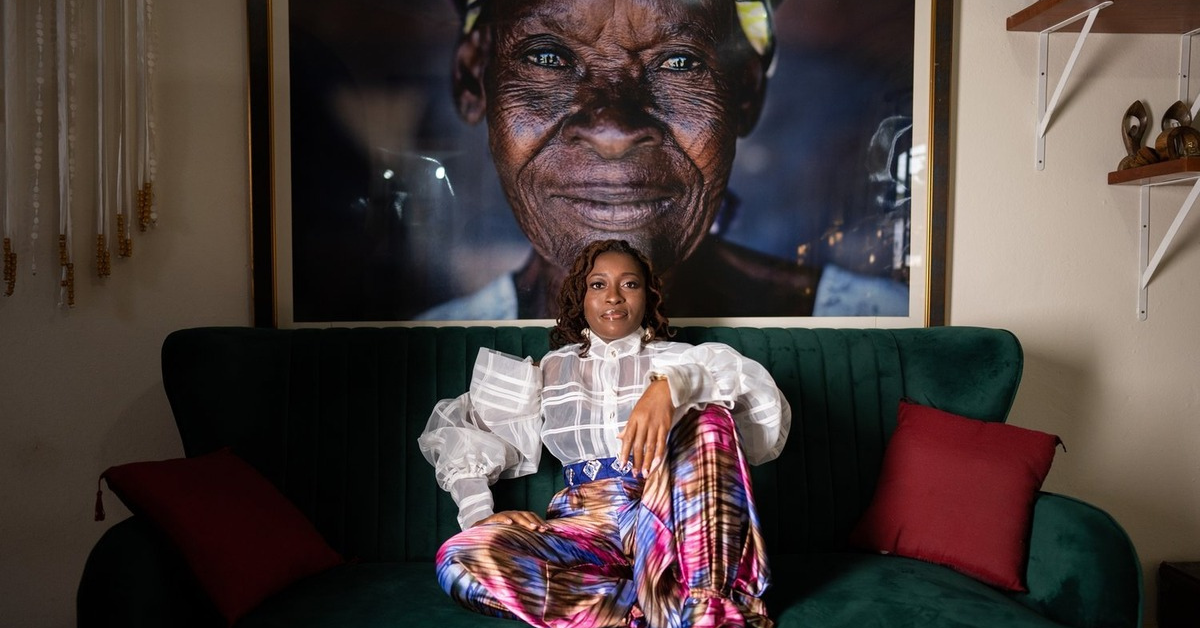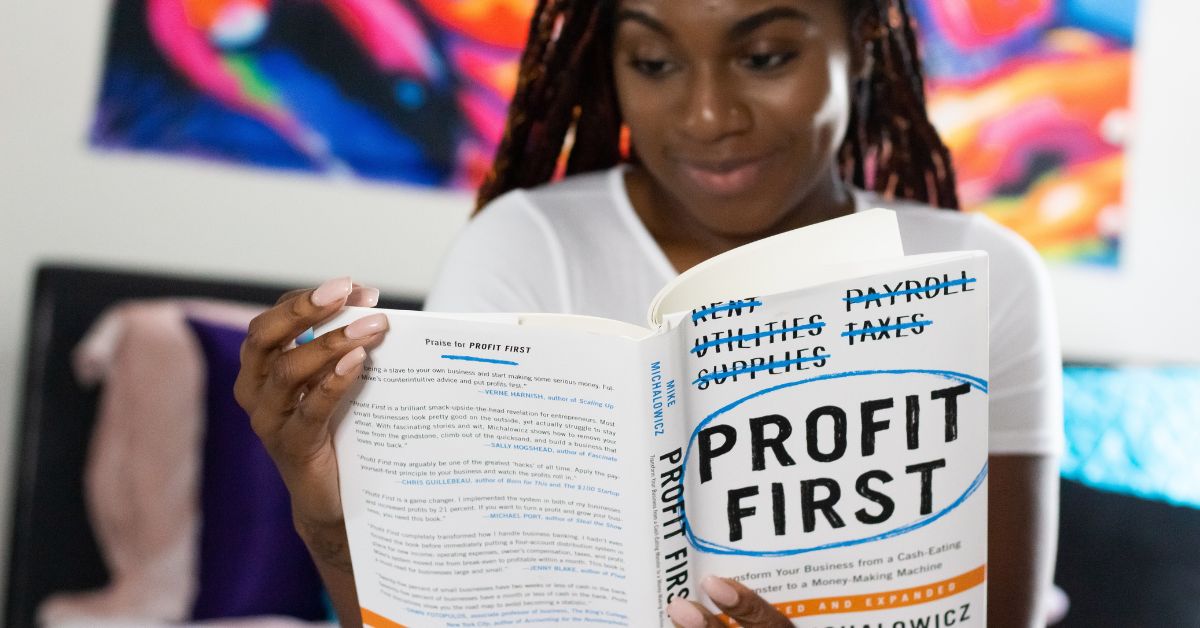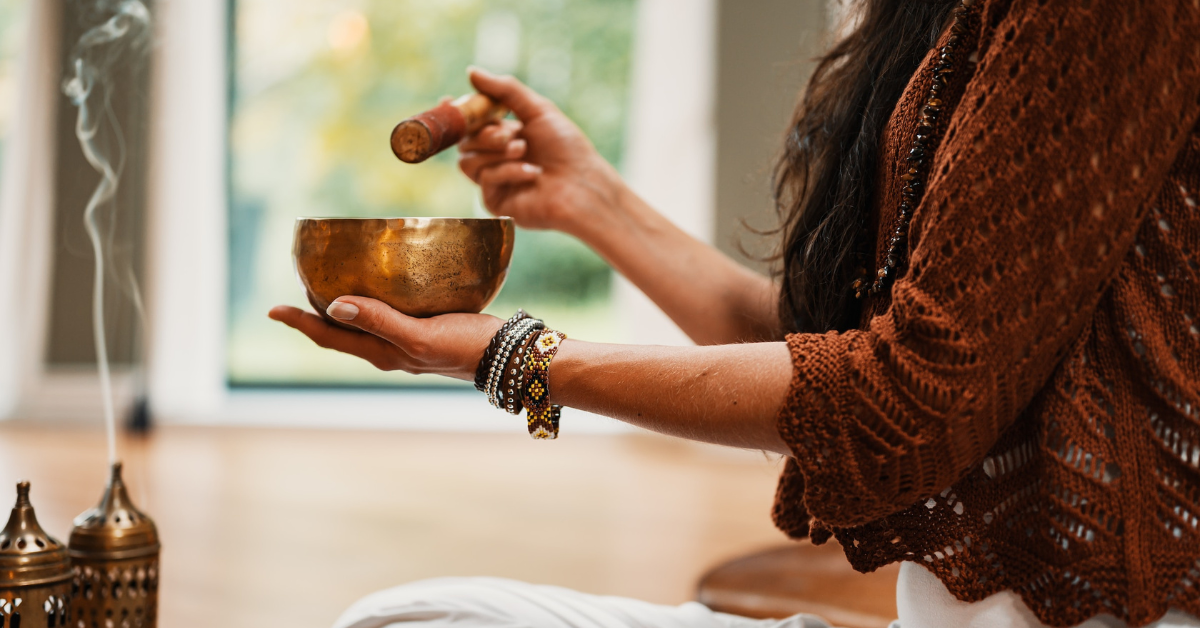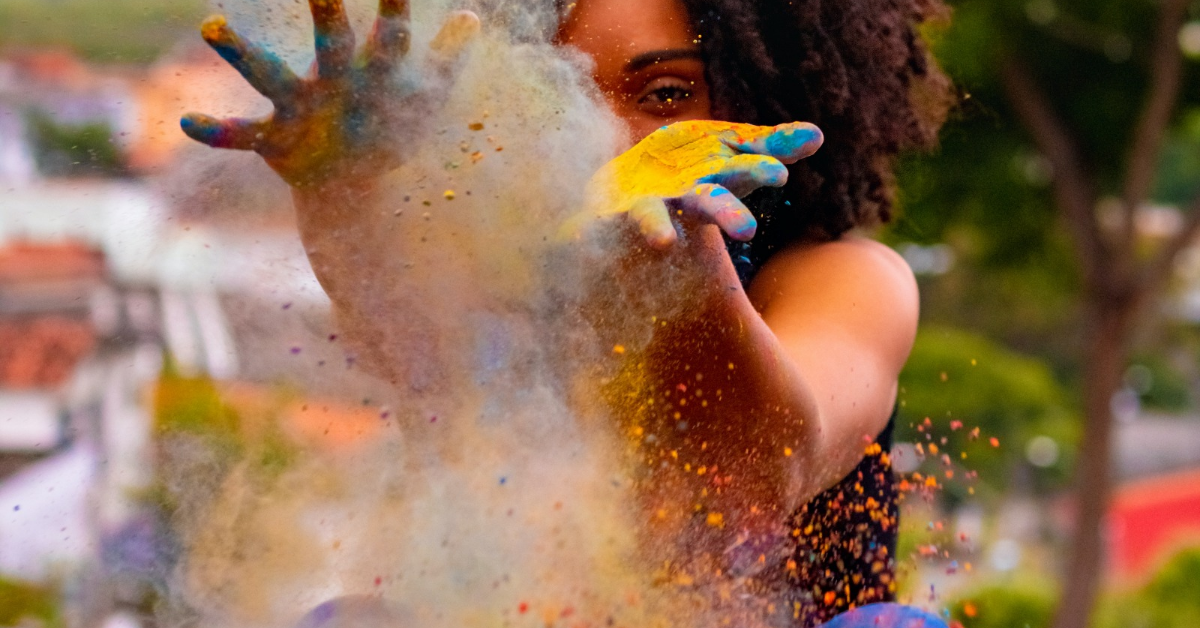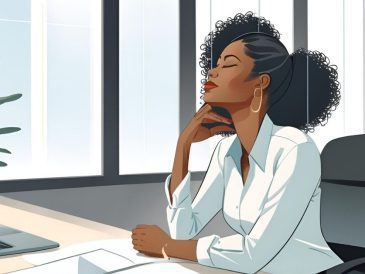Nana Darkoa Sekyiamah, author of the critically acclaimed book “The Sex Lives of African Women: Self Discovery, Freedom and Healing,” talks to Elle Williams, Founder and Publisher of eleanor.africa.
Elle’s Note: I’m a huge fan of “The Sex Lives of African Women,” which is both a Dorothy Koomson Book of the Year and an Economist Book of the Year, and has received multiple glowing mentions in The New York Times. So needless to say, I was delighted when I met Nana at the Open Book Festival in Cape Town, and she offered us an impromptu interview! It ended up being a lively discussion, the text of which is captured here.
Uncovering The Sex Lives of African Women
Elle: I remember when I first saw the book – I stumbled upon it at Exclusive Books. The title caught my eye, I grabbed it and opened it up, and the first thing I read was a chapter by a transgender woman in Europe, which I could not put down. I was spellbound! Tell me, what made you need to write the book? Could you take me through the journey?
Nana: I like the question “What made me need to write the book.” What made me need to write the book was knowing that African women have all types of experiences and stories about sex. We have fun experiences, wild experiences, and experiences we’re trying to figure out. But I think the world didn’t know or didn’t imagine that we have fun in our bedrooms. Because all the stories that existed, particularly in Western mainstream media were depressing.
They were stories where we were always portrayed as women who needed to have our sexuality and our reproductive functioning controlled. Because we have ‘too many children,’ or we have HIV and AIDS. Without an awareness that you can have HIV and AIDS, and still live a fulfilling life. Or we’re miserable, we have no agency. And I just felt that I knew differently. I knew this because I had been writing about sex through my blog, Adventures From The Bedrooms Of African Women.
Initially, I had an unrealistic, ambitious goal about wanting to interview an African woman from each country on the continent. It was completely unrealistic! So, eventually, I said ‘Wait, I’ll just interview as many African women as possible, from different countries, including the diaspora, and just document their stories. Their experiences around sex, sexuality, and pleasure.’ So that’s how the book came to be.
What were some of the main responses that you got when you reached out to those women and started the interview process?
People wanted to share their stories because this is something we don’t tend to speak about. So it was good. I don’t think anyone said ‘no, you can’t interview me.’ But of course, I didn’t just ask every single person, I was looking for diversity in the stories I was telling. People with different life experiences, from different countries. I would meet strangers, we’d have a conversation and I’m like ‘ooh you’d be a great person to talk to!’ So I’d say, ‘I’m working on a book called The Sex Lives of African Women, can I interview you?’ And the answer would invariably be yes.
So the experience was very positive. And usually, people would end up telling me things that they’d never told anyone before. By the end of an interview, often they would say, ‘Wow, I didn’t know I was going to share all of that with you,’ or something along those lines.
What made me need to write the book was knowing that African women have all types of experiences and stories about sex. We have fun experiences, wild experiences, and experiences we’re trying to figure out.
Nana Darkoa Sekyiamah
Transcending Taboos: Unveiling Untold Stories
Were there specific things that people ended up sharing along those lines? What were the main themes of the topics that they hadn’t planned to share?
Well, I had a lot of people talking about the experience of childhood sexual abuse. And that wasn’t something that I had initially expected. I started off wanting to write a joyful book. I still think I wrote a joyful book, and it’s a joyful book threaded with pain and trauma because unfortunately, that’s the reality of our lives. And I think what’s helpful is that a lot of people are being intentional about healing from their trauma. Showing that even when you’ve experienced trauma, you can survive it. You can figure out ways to heal – and that looks different to everybody. You can take agency back over your life.
So that was very helpful. But it did get to a time where it felt really heavy. And I realized that there was a question I was asking that was triggering people to tell me about these experiences of child sexual abuse, so I also stopped asking that question.
What was the question?
The question was ‘Tell me about your earliest sexual memory.’
Mmmmm. That’s a loaded one.
Yes. And for a lot of people that memory was of violation. I was expecting ‘I fell in love in my teens’ but no. It wasn’t that.
So the introduction to sex is a violation, for many of the women you spoke to.
Yes, and I suspect for many women around the world, I wouldn’t just say for many African women.
From Pain to Power: Reclaiming Sexual Agency
That’s very…stark. Because what it means is that the process you describe of reclaiming agency becomes almost universal when we discuss the journey to the sexually sovereign self. By definition, if you’re becoming sovereign in any sphere, that’s about claiming agency. But I think there’s a difference between cultivating agency and reclaiming it, in other words taking it back. Those are two different processes. And of course, we live within a patriarchal system that works very hard to protect itself. Even through the ideas that we are fed with about what we can do in relation to it.
What came up for you in the discussion about the relationship between the process of reclaiming agency, and the ways that personal power works in regards to sexual expression?
I mean personally, many things came out. But I think part of my conclusion is that personal power is different for everybody. How you access your power could be very different from how the next person accesses theirs, right? So, if we’re talking about sex and sexuality, some people access their power when they are celibate for a while. Thinking ‘actually, all my life, I’ve had multiple sexual relationships that were about pleasing other people not pleasing myself. So this is going to stop.’
Okay and so that’s the reclamation. It’s taking back the ‘no.‘
That’s the reclamation. ‘I’m just going to stop and focus on myself. Focus on other areas of my life. Focus on my business, focus on my career, focus on my child, whatever. I’m focusing on myself. And I’m going to do the work of figuring out what I want.’ And part of that process might mean masturbation. Or it could be ‘I’m not even going to masturbate, because I’m trying to channel that sexual energy into something else.’
And for somebody else, sex is healing. It’s ‘I’m depressed, and the thing that’s getting me through my depression is having lots and lots of sex.’ So accessing personal power looks different for different people.
And in terms of what you said about reclaiming agency, the thing that was very profound and that stayed with me as the mother of a young toddler is that part of what happens is that we take agency away from children and young people. So I want to challenge myself to not do that to my daughter. Not to take away her agency and power, you know? But to encourage that, and nurture that so she has it in childhood. I feel like if I’m able to do that I will have been successful at motherhood. And it is so hard, you know!
Yes! I mean there’s so much that came up in your earlier panel discussion about unlearning. And I think that’s one of the unlearnings. We need to understand the notion of children being sovereign and deserving full respect, not half respect. So when a child says, ‘no, I don’t want to kiss that auntie or uncle hello,‘ it’s so important to validate that. That validation hasn’t been the norm, but it should be. And I think many of us are making it the norm now.
And it’s really hard. Because I’m also realizing there’s a balancing act between that and not stepping away from your responsibilities as a parent. Guiding your child and saying no to them sometimes. Also recognizing that there are times that they know best, and pushing them along the path they think they need. It’s really hard!
It really is.
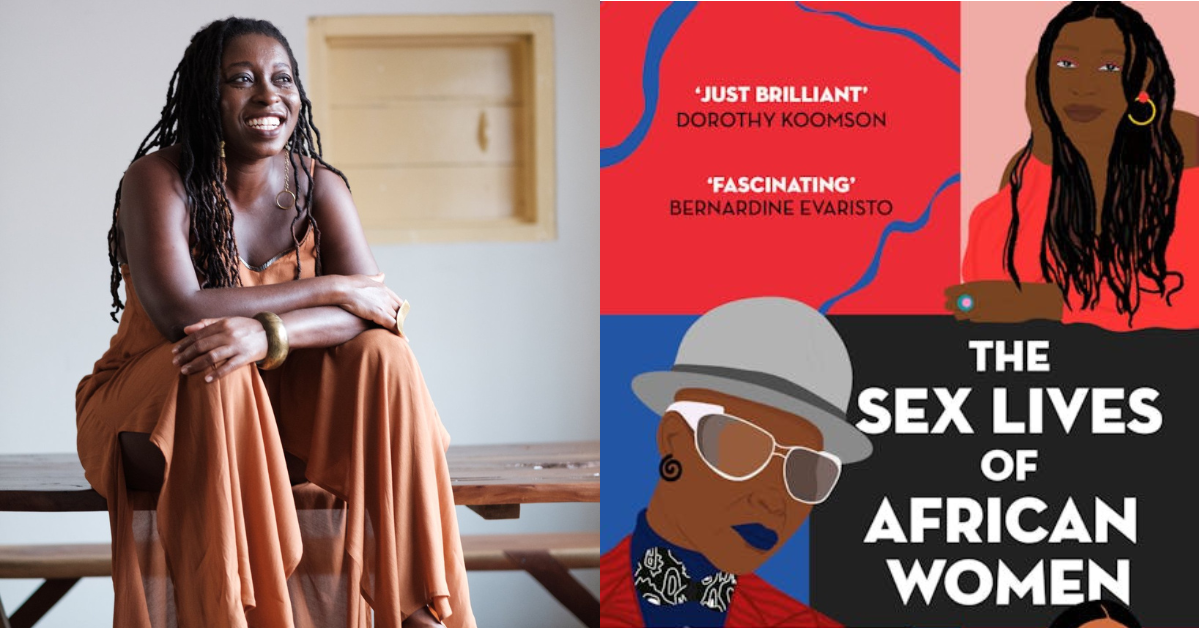
Beyond Borders: Rethinking Africanness
So, the book covers the globe. The title is The Sex Lives of African Women, and you referred earlier to a Brazilian woman featured in the book also as African, which I cosign on. So I’m just curious – was there general consensus about who makes up ‘African women?‘
(Laughter) Consensus amongst who?
Among the people you were interviewing! And more broadly, just those who were aware of what was happening with the work.
It’s an interesting question because I feel like the reception to how I define and claim African identity in the book has been received differently by people in the diaspora and people on the continent. And I get it now. I feel like continental Africans have not always understood why I describe some people who were born and raised in the diaspora as Africans, right? And I think that comes from being a people whose stories haven’t been centered. And so it’s almost like ‘oh but I thought this book was about only us, and now it includes all these other people – why?’
But then people in the diaspora have felt seen by my describing them as African. And that meant a lot to me. And it meant a lot because for me, I identify as a Pan Africanist. I center continental Africans in my work, and I also claim people who are from the diaspora as Africans, because they are! Just because they are separated from those of us on the continent because of slavery, because of colonization, because of migration, it doesn’t make them un-African. For me, politically they are African, and I wanted to bring them all together in my book.
It’s also because a couple of years ago I had no idea that there were such strong communities of Afro-descendants in parts of Latin America for example. You know when I went to Brazil, I was in Bahia, which is in a sense the black region of Brazil, and people were speaking to me in Portuguese because they assumed I was a black Brazilian! But in Bahia I felt as African as I do anywhere else on the continent. I may have even felt more African because sometimes when I’m on the continent people are like ‘are you American?!’ and I’m like ‘no, no.’ In Brazil, they thought I was a black Brazilian, because I could be a black Brazilian!
But then during the writing of the book, the people I interviewed knew that I was writing a book called The Sex Lives of African Women and they didn’t say ‘oh, but I shouldn’t be in this book, it’s about Africans.’ They got it.
That’s what we want. Because I think the notion of what constitutes Africanness has to be given the same room to grow and expand and develop and futurize itself as any other. Historically we’ve tended to essentialize Africa or Africanness as if it’s locked in time or should be, when actually it gets to shift and evolve. And I think it’s important to be deliberately inclusive about who is ‘African’ because I think spiritually, we need that.
Ultimately, whether on the continent or in the diaspora, all of us have common ancestors whose bones are buried here. So there’s an indivisibility, despite the things you mentioned – enslavement, colonialism, migration – at the end of the day there’s still a rootedness that can’t be erased. And I think it’s our mandate for this moment, to do the things to create that sense of unity. It doesn’t mean we must agree on everything, but as far as the lines that we draw around who is ‘us’- we need to be quite deliberate about being fully inclusive there.
I center continental Africans in my work, and I also claim people who are from the diaspora as Africans, because they are!
Nana Darkoa Sekyiamah

The Pleasure Principal: Sex Education and Empowerment
So for my last question, something I’m very interested in is the idea of the right to pleasure. What did you find in regards to that, both among the people you interviewed and the reception to the work?
In general what I believe is that we all have an indivisible right to pleasure. We have a right to pleasure in our bodies and we have a right to know that our bodies do not exist just to serve other people, right? Our bodies are a source of pleasure that we can come home to at any time. And for me that’s been the missing link when it comes to sex education.
Sex education as it’s been traditionally done, if it is done at all, makes us think of our bodies as scary, or sex as something scary, or an act that will result in pregnancy or disease. But we need to change that to think of our bodies as a source of pleasure. I think it’s really important that we train not just young people but everyone, about sexually transmitted diseases, about pregnancy as a huge event in your life, and for people to think about when they want to engage in an act of sex, how they can make it safer.
Emotionally as well.
Yes, emotionally as well as physically. But I think we should start with self-pleasure. So for me rather than preaching abstinence, I would rather people preach – experiment with enjoying your own body by yourself.
I think it’s a prerequisite for any kind of meaningful exchange with another person because otherwise what are you bringing to the table? You should know what you like.
Yes, and you should know what you like for yourself, for me it shouldn’t be so you can bring those skills to somebody else.
No, it’s so that you can advocate for yourself.
Absolutely.
Because otherwise, you’re almost writing yourself out of the experience. It’s about advocating for your enjoyment, which is what I think everybody needs to be able to do.
Totally.
And what has the reception been to the book, as a reclamation and a celebration of that right to pleasure?
My work has been received positively. Overwhelmingly it’s been received positively. I’ve had young people come up to me and tell me how much the work has meant to them. I’ve had older women say to me that reading my book made them question their sexuality. They’ve realized that their sexuality may not be as fixed as they thought it was. There have been people who have told me about someone they know who got divorced because they read my book. And I’ve had people tell me they now understand trans issues in a way they didn’t before because they read the stories of trans women in my book. That’s the kind of feedback that I’ve had.
That’s amazing. Thank you Nana for your time and for creating this work. And thanks for holding the space for us to move these conversations forward.
Related Articles: How a Healthy Sexual Connection Can Help You Resolve Relationship Conflicts
